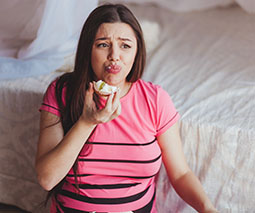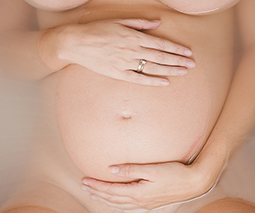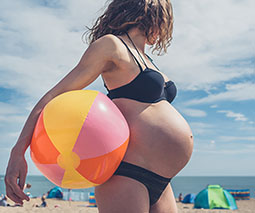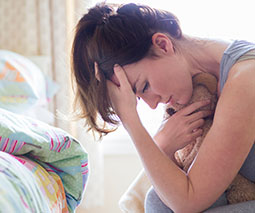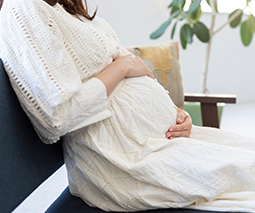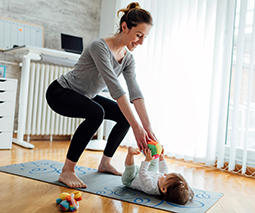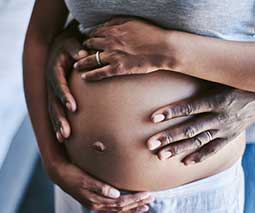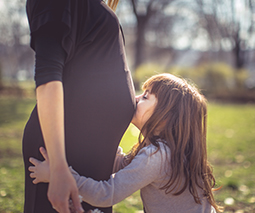Look out down below! The nasty pregnancy side effect no one talks about
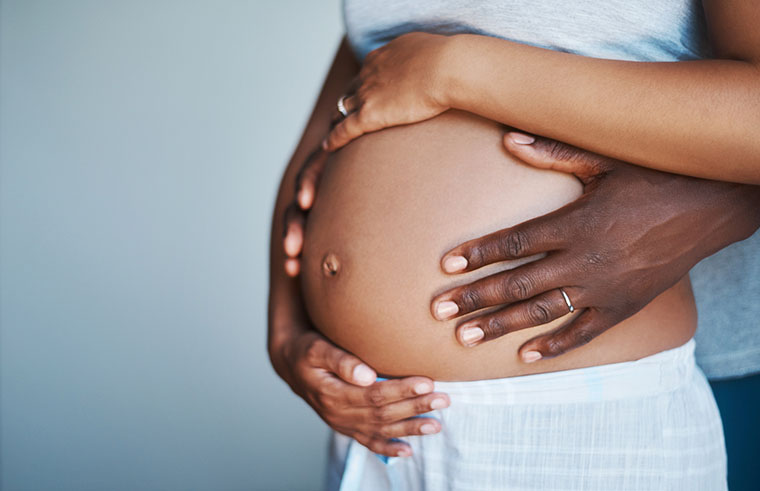
We’re all familiar with your run-of-the-mill pregnancy troubles – morning sickness, back pain, heartburn and constipation – but what about giant, swollen, painful lady bits?! No one else will bring it up, so we will. Varicose veins of the vulva are a thing and there is some information that will help you, should you fall prey to this unfortunate pregnancy symptom.
Vulva what now?!
Varicose veins are very common in pregnancy with women either developing them for the first time when expecting, or finding they get worse if they already have them. They appear mostly on the legs and look like funny blueish or purple scribble lines. But these bulging veins near the surface of the skin can also occur in the outer lips of your vagina (the vulva) or in your bottom (haemorrhoids). Ouch!
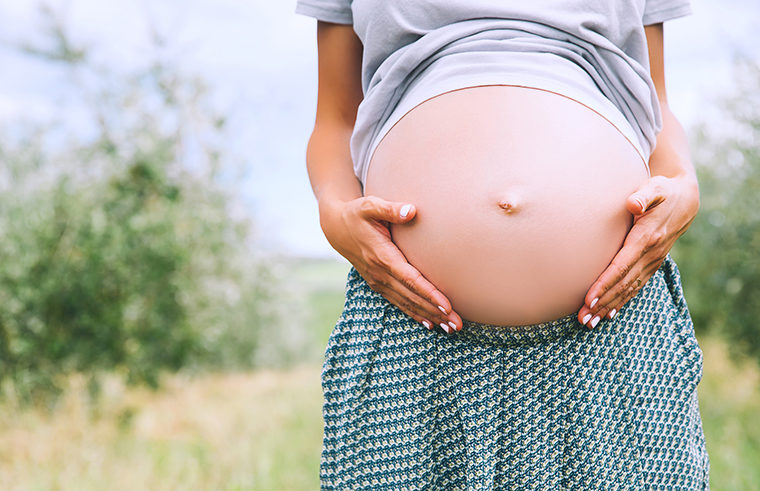
Why does it happen?
As your uterus grows it puts a lot of pressure on the rest of of your body, particularly a large vein on your right side. This adds pressure to your legs, which are already under strain from carrying more weight than normal. Add this to the swelling caused by the increased amount of blood your body produces during pregnancy, the rise of your progesterone levels which relaxes the walls of your blood vessels and your body is ripe for producing varicose veins. Also, if you have a history of varicose veins (of any kind) in your family, then it’s likely you’ll get them too. Carrying twins, being overweight, multiple pregnancies and standing for too long can exacerbate the problem as well.
The signs and symptoms
If you develop varicose veins of the vulva the symptoms will be hard to miss. For starters, your lady bits will be super swollen – it’s not very attractive at all so whatever you do don’t peek in the mirror. Looks aside, your bulging vulva will also be very uncomfortable and sore. It’s such a sensitive area down there anyway, but in this case your veins are also struggling to pump carbon dioxide and other waste from the vulval tissues which create a toxic build up. The good news we hear you ask?Thankfully they have no impact on the baby or birth whatsoever.
Will they go away?
Thankfully, yes. Most women with varicose veins of the vulva find they disappear a few days after the birth, especially if they didn’t have any other varicose veins prior to pregnancy. So if you’re worried they will never leave, you can breath a sigh of relief, because once you birth that baby they will soon be gone.
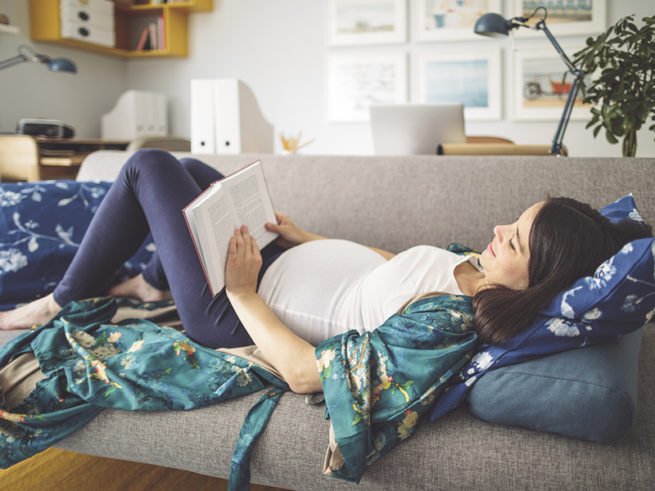
How to help ease the pain
Waiting until your baby arrives can be torture for someone with a super swollen va-jay-jay. Luckily there are a few things you can do to help ease the pain and discomfort.
- Exercise daily: Even if it’s just a short walk to help improve circulation, exercise will help.
- Do pelvic floor exercises: This particular exercise helps strengthen the weak tissues in your vulva and helps the blood circulate.
- Don’t sit or stand for long periods: Get up frequently if you’re at a desk all day, or take breaks if you’re constantly on your feet.
- Don’t overeat: Stay in the healthy weight range throughout your pregnancy.
- Elevate your legs: Get those feet up if you’re able, even if it’s just once a day, so your legs are higher than your heart.
- Rest up: Get as much rest as you can; being rundown will only make the symptoms worse.
- Wear supportive underwear: Purchase undies that are tight but not cutting into your groin. Your doctor might also suggest a groin band which essentially has the same effect – to contain and provide relief to the area.
- Natural therapies: Aromatherapy, herbal supplements and homeopathy are also methods that some say can help.
- Put ice on it: This is particularly good for post-birth. You can put small ice packs into a sanitary pad (just rip a hole in the pad) and then wear in your undies to help reduce swelling
- Sleep on your left side: There is no concrete proof this works, but the theory is that it takes the pressure off the right vein which is being pushed on by your uterus.
If you are currently experiencing vulva varicosities we feel your pain! Hang in there ladies, it will be gone soon enough and thankfully a beautiful baby will be here instead. And if you are concerned at any point please discuss your condition with your doctor.
